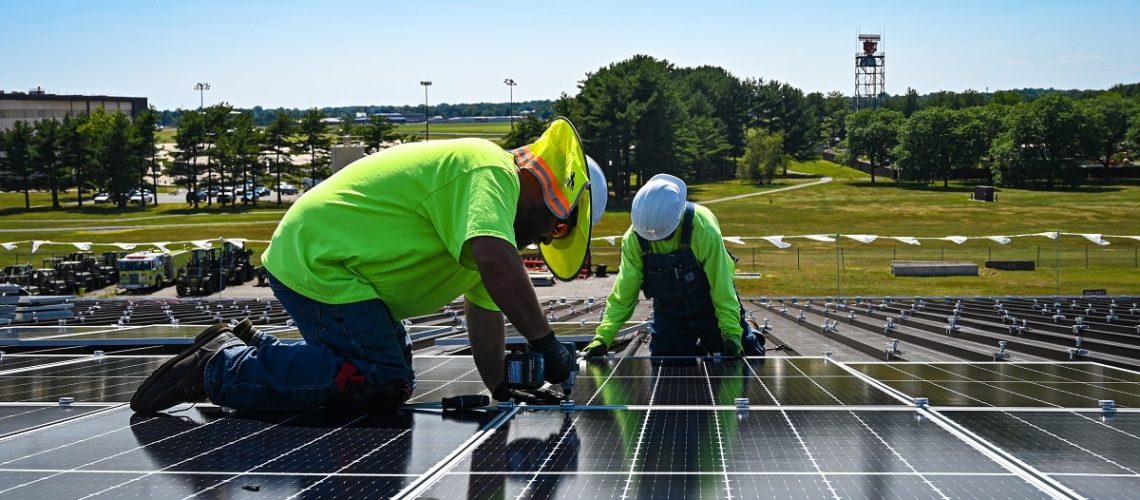Joint Base McGuire-Dix-Lakehurst embarks on Phase 2 of a project designed to increase resiliency, security and sustainability.
Ameresco, a cleantech integrator, is partnering with Joint Base McGuire-Dix-Lakehurst (JBMDL) in New Jersey on a $140 million infrastructure and energy resilience project. As part of the federal government’s Climate Smart Building Initiative, the energy project will include a 32 MW solar facility with a 2 MW/ 4 MWh battery energy storage system. Energy savings steps are also being taken, including the installation of 90,000 smart LED light fixture retrofits.
Ameresco has served as an energy services provider to JBMDL for more than a decade, completing an initial project in 2012 and supporting operations and maintenance (O&M) on the systems since their completion. This latest installation and upgrades are Phase 2 of the project. The 32 MW solar installation is the largest that Ameresco has installed at a federal site. It is paired with a battery energy storage system (BESS), which will be integrated with backup generation assets within the microgrid. The goal of the project is to ensure that the base has access to uninterrupted power to support its critical missions.
“We are incredibly excited to expand our already robust partnership with the team at Joint Base McGuire-Dix-Lakehurst,” said Nicole Bulgarino, executive vice president of Federal Solutions at Ameresco. “We’re eager to get started on the integration of advanced clean technologies to create a more resilient and sustainable energy future for the base and deliver a project that meets the installation’s mission requirements while also advancing the Climate Smart Building Initiative.”
In addition to LED fixture retrofits, other energy demand reduction measures include wireless streetlighting controls, and advanced interior lighting controls. Overall, the upgrades are expected to generate more than $4.7 million in annual energy savings for JBMDL, a total energy usage reduction of 22%.
The Phase 2 construction is scheduled to begin shortly and reach completion in early 2025.
The Joint Base project is a part of the Climate Smart Buildings Initiative that the Biden administration announced last month. This initiative intends to modernize Federal buildings to better meet agencies’ missions, create good-paying jobs, and cut greenhouse gas emissions. The initiative is expected to catalyze over $8 billion of private sector investment by 2030 to modernize facilities through energy savings performance contracts. It is also anticipated to reduce greenhouse gas emissions by up to 2.8 million metric tons annually by 2030, which is the equivalent of removing 600,000 gas-powered cars from the road.



